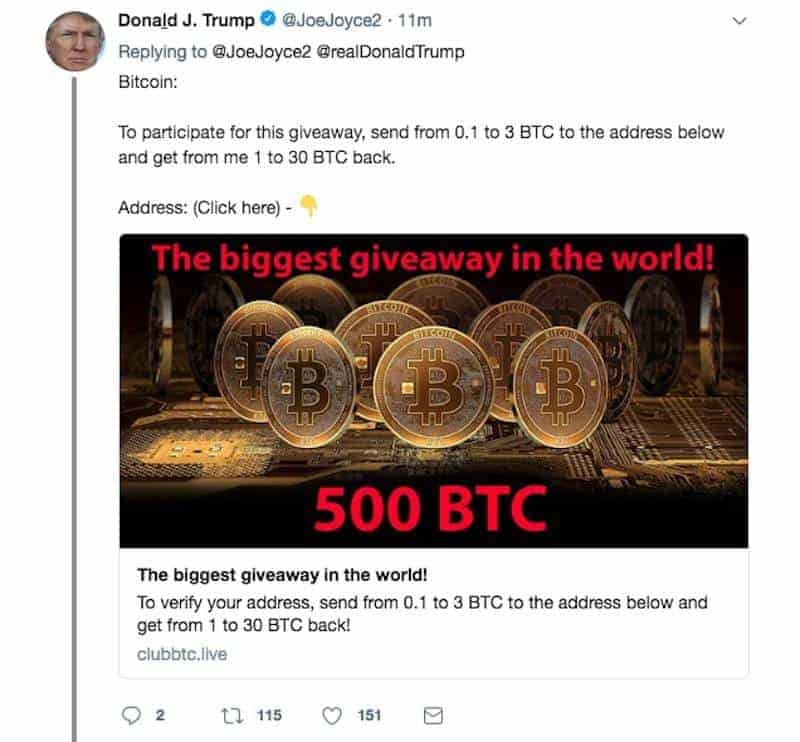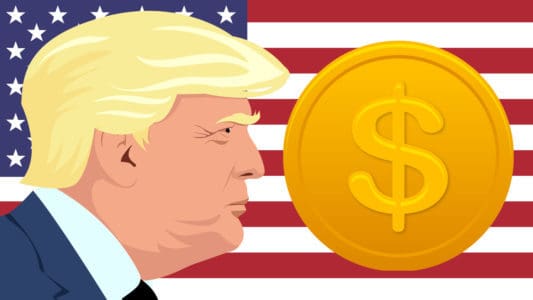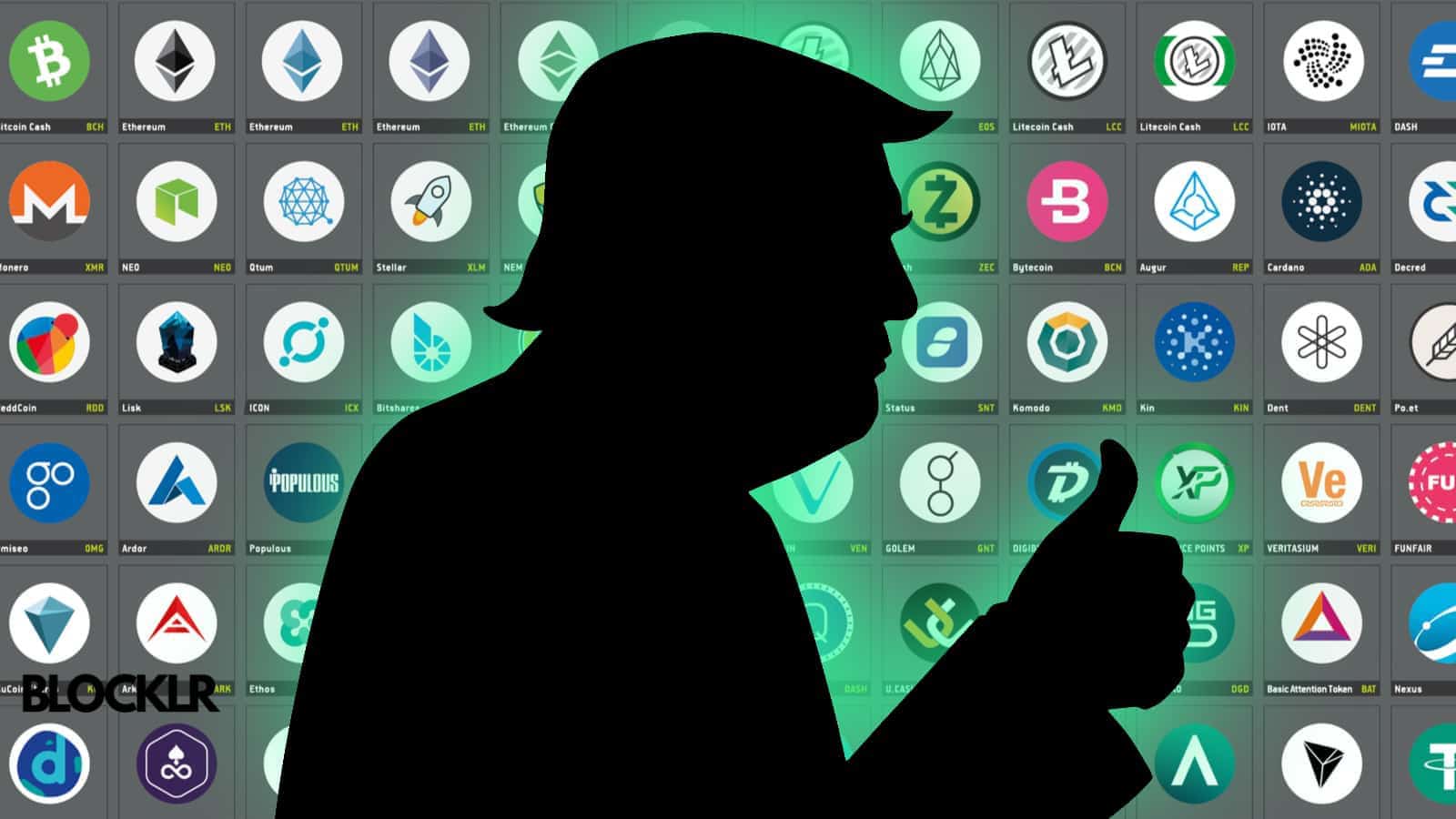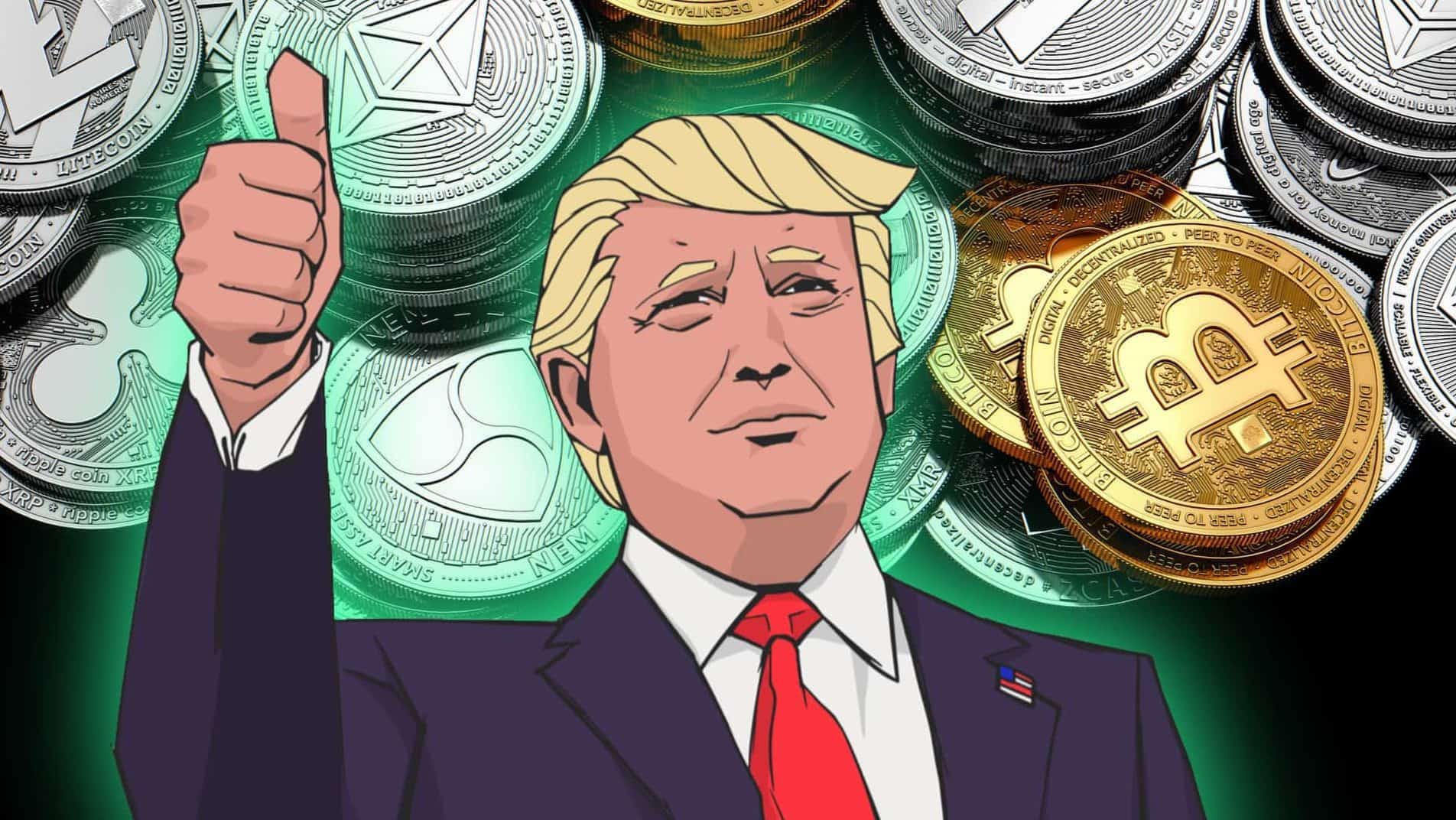Donald Trump tweets often, but since taking office in 2017, he hasn’t posted a single tweet about cryptocurrency. Earlier this summer, however, Twitter users thought President Trump wasn’t just tweeting about crypto, but about a cryptocurrency giveaway. Those tweets, sources later concluded, were fake. Further, they were part of a scam orchestrated by a hacker who spoofed an account to look just like Trump’s. Still, the fake giveaway raised an important question about Donald Trump’s views on cryptocurrency. What does the President think about the rapidly growing and mainstreaming world of digital money? Does he even know what cryptocurrency is?

Donald Trump Views Cryptocurrency as a Vector for Fraud
The last time Donald Trump and his administration made ripples in the cryptocurrency world was in mid-July. Crypto investors will forever remember this time as the end of the Great Bull Run. Namely, when the rise of cryptocurrency prices and the global market cap hit a wall of regulation and skepticism that plummeted coin prices.
The volatility of the cryptocurrency market was on full display that month. The result, among other responses, was a renewed scrutiny of crypto’s significant potential for abuse, fraud, and money laundering.
On Thursday, July 11, President Trump signed an executive order establishing a Task Force on Market Integrity and Consumer Fraud. The order outlines the Task Force’s responsibilities, but Donald Trump doesn’t mention cryptocurrency by name. Rather, Section 4 of the order states that the Task Force shall “provide guidance for the investigation and prosecution”. This includes a long list of fraud types, including “digital currency fraud” and cybercrime.
The Task Force mandates persons and agencies that have already ramped up their oversight and enforcement of cryptocurrency trading, including the Securities and Exchange Commission (SEC), the Federal Trade Commission, the Consumer Financial Protection Bureau, FBI Director Christopher A. Wray, and Deputy Attorney General Rod Rosenstein.
Donald Trump Has Connections With Ripple

![]()
Donald Trump’s Task Force on Market Integrity and Consumer Fraud give federal agencies more control and oversight over cryptocurrency markets. The SEC and CFPB have already been actively investigating frauds like Initial Coin Offering (ICO) exit scams. Hacks and other forms of cybercrime that have rocked the cryptocurrency market will also fall within the ambit of the Task Force Donald Trump established in July.
Beyond that, however, not much is known about the President’s views on cryptocurrency. Some sources have reported on the close personal relationship between Ripple board member Ken Kurson and Donald Trump. Throughout the year, Ripple has been trying to avoid classification as a security by the SEC.
Will Donald Trump Address Countries Using Cryptocurrency to Evade U.S. Sanctions?
It’s also unclear how Donald Trump might respond to increasing reports that countries are resorting to cryptocurrencies to avoid U.S. sanctions. U.S. sanctions only apply to operations involving U.S. currencies; something countries can bypass by employing digital currencies. One country recently reported to be increasingly turning to cryptocurrency to evade U.S. sanctions is the Democratic Peoples Republic of Korea. How Donald Trump will react to this information remains uncertain, however, especially in light of the President’s recent comments that he and North Korean leader Kim Jong Un have “fallen in love.”
Donald Trump’s Ex-Advisor Praises Cryptocurrency and Decentralization

While President Trump hasn’t said much about cryptocurrency, those close to him have spoken out favorably about the decentralized vision of commerce blockchain makes possible. Former White House Chief Strategist and Senior Counselor to the President, Steve Bannon, for example, spoke in Europe earlier this year about the significance of blockchain technology.
Bannon has branded himself as an extreme right-winger and populist who has alternately embraced and struggled to distance himself from the loose coalition of white supremacists and neo-Nazi’s comprising the so-called “alt-right”. Trump dismissed Bannon from his administration over a year ago. Bannon has since been on a speaking tour highlighting his populist platform and ideology. For Bannon, cryptocurrency and blockchain technology represent the “very heart” of a populist movement. In other words, Bannon sees cryptocurrency as a response to the control of central banks, government, and technology conglomerates.
Given how close Bannon was to Trump, it’s possible Bannon may have had some influence on Trump’s thinking regarding cryptocurrency. On the campaign trail, Trump and Bannon aimed at financial and political elites, promising to “drain the swamp.” During his European tour, Bannon argued that decentralization was a tool for taking control away from the elite class. At the same time, the executive order Donald Trump signed in July puts more control over cryptocurrency in the hands of federal regulators, not less.

